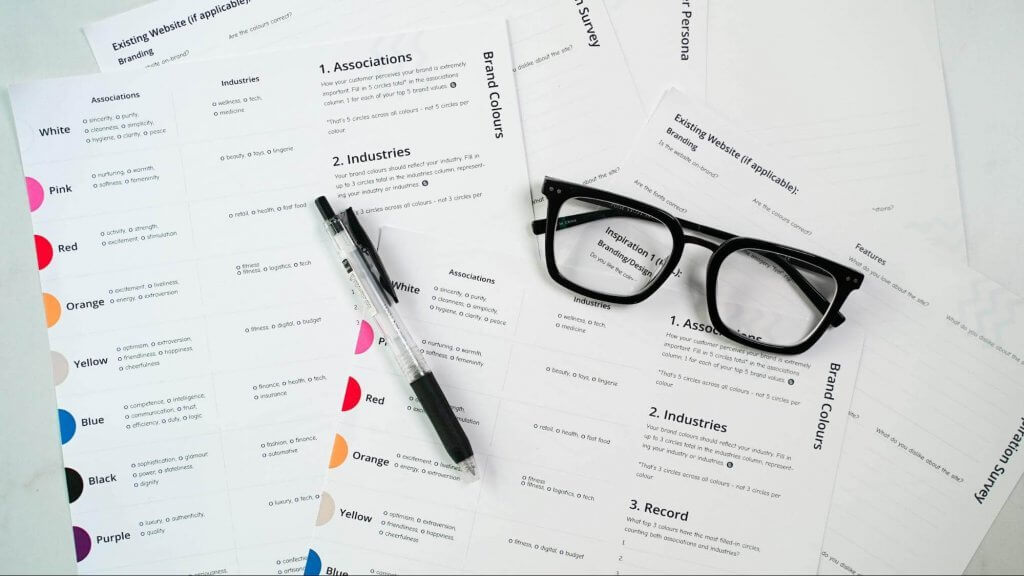Minimalism and finances are two words that aren’t often seen in the same sentence. Maybe it’s because keeping track of finances typically involves hoarding heaps of invoices, receipts, paystubs, legal documents, and other nonsensical bureaucratic paperwork that small business owners need to keep track of. Who invented these things? Why do we need them? And most importantly, how can we make them go away?
If you have reached a point in your life where you contemplated simply tossing all your business documents into the nearest bonfire- this article is for you. Because we want to tell you- it is possible to minimize, organize, and clean up your finances- both physically and metaphorically. It’s easier than you might think. If Marie Kondo has taught us anything- it’s that decluttering is rewarded with peace of mind and more space to pursue what we enjoy. That’s something we can all use a bit more of. So if you’re ready to declutter and streamline your small business’s finances, once and for all – we’ve got you covered.
1. Digitize Your Paperwork
Nobody likes having to organize and handle stacks of papers, invoices, and receipts. But to run a small business properly, documentation is paramount. Things get even more complicated when you have employees. And unfortunately, some organizations like the IRS are obsessed with paperwork, so there’s no avoiding it. Paperwork, however, can be decluttered, minimized, and streamlined enormously via digitization.
In order to do this effectively and correctly, you first need to establish a filing system. Essentially you’re trading in physical filing cabinets for digital folders. To stay organized, it’s important to use a consistent naming system for both your files and folders. Next, convert any physical documents into digital copies by scanning them in. Clip the most important documents you need to keep physical copies of- like your seller’s license- in a single binder folder- and shred and toss everything else. If you need to keep original receipts, place all of them in a single envelope in your binder, labeled by year, and make sure to sort these out periodically. This is the first step in eliminating excess paperwork.
After you’ve digitized your paperwork, avoid reverting to the cluttered life by dedicating a day every month to get your files updated. If you have vendors that work with digital invoices, make sure to download and file the PDFs as needed. And last but not least, make sure you’re backing up your files frequently on both a physical hard drive and a secure encrypted cloud service.

2. Pick a Software to Run them All
The second most cumbersome thing for small business owners to deal with is the sheer amount of reports they have to generate at the end of every month. Balance sheets, inventory lists, cash flow reports- the list goes on. If you need a refresher, we’ve written about the most essential reports for small businesses here.
The point is- all these reports require us to keep track of a lot of information and numbers. To some, that can turn into mental clutter. We suggest finding a top-notch finance software, like Quickbooks, to handle the information load. Please, do not try to do this in excel to save a few dollars a month. Dedicating a one-stop-shop software to handling your financial records and reports will save you lots of time and headaches in the long run. This is why step 2 of minimizing your finances is to invest in sound financial management software for your small business.
3. Determine Your Most Relevant Metrics
So far, we’ve talked about handling physical clutter via digitization, information clutter via good financial software, and now, we need to talk about metric minimization. If the term sounds made up- it’s because it is. But what it means is that in order to stop worrying about every little thing in your business- you need to reduce the KPIs, or key performance indicators, that you want to focus on.
The goal of metric minimization is to help you get to the bottom of what you care about and want to focus on most for your business. Is it how much you sell? Is it your profit margin? Is it how many subscribers you get, how many people walk into your shop, or how many people click on your Instagram promo? Regardless of what it may be, make sure you choose the most important thing you want to focus on- and do not take on anything else until you are satisfied with how you are doing in that area.

4. Priorities Your Financial Activities
Next, decide what financial activities you want to focus on the most. Do you need to see every invoice that comes through your doors? Or can you focus on your balance sheet at the end of the month? Are you interested in tracking your employees’ hours- or would you rather be focused on increasing your sales numbers?
While some people have a hard time letting go of micromanaging their small business’s finances, sometimes that’s precisely what’s needed. Creating a well-oiled machine requires some semblance of trust- and if you focus too much on controlling every aspect of your business and not enough on building systems to do those things for you- then you lose sight of priorities and create unnecessary stress for yourself. Doesn’t that seem like a lot to hold on to? Declutter your priorities and decide which financial activities are the most important to oversee and which you can delegate. This brings us to our last point.
5. Delegate Anything Tedious
The biggest lesson we learn in the process of decluttering is about being able to let go. Whether that’s of possessions, paperwork, responsibilities, priorities- it all amounts to the same thing in that these things accumulate to become burdens that anchor us down and prevent us from moving forward in life. That’s also why the process of decluttering and letting go feels so liberating. Everything we remove from our lives becomes one less thing we have to worry about, keep track of, manage, and make room for things we want to focus on.
In that sense, decluttering is a journey we have to go through to realize exactly how much stuff is unconsciously affecting us and consciously deal with it. Each step we take to declutter and let go brings more peace and clarity. And after going through the process once, we become a little more averse to going back to the noise and clutter. We want to maintain calm and orderliness.
While I may be speaking in abstract terms, as a small business owner, this may require a moment of honesty with yourself. What caused you to accumulate the chaos in the first place? Is it a lack of time to stay on top of things, or just a lack of desire to, well, deal with paperwork? Whatever the reason- cut yourself some slack- it’s perfectly ok.
This is a great point to ask yourself if there’s anything tedious you’d rather not be doing. If so- make a point to delegate it to an employee or assistant. A professional bookkeeping service like KGC consulting can help you keep your finances updated and help streamline other financial aspects of your business. If it can help you gain more freedom from tedious tasks, it’s worth it.

Conclusion
Next time you find yourself staring at a cluttered desk and feel the mental load of endless do lists, obligations, and deadlines rattling around in your head, remember this:
The reward of decluttering is in freeing up space, time, and energy for things that bring you joy. We can apply this philosophy to streamline our small business’s finances and, as a result, make our lives much easier and happier.
Need help digitizing and streamlining your small business’s finances? Reach out to one of our bookkeeping professionals at KGC Consulting today.